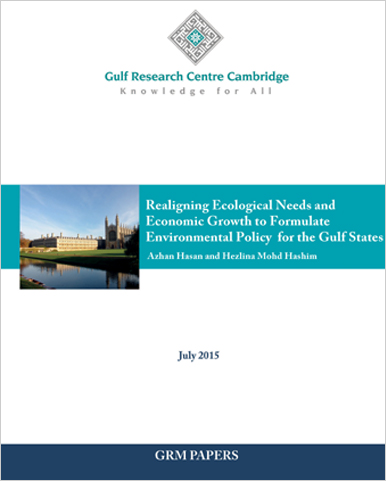Realigning Ecological Needs and Economic Growth to Formulate Environmental Policy for the Gulf States
Publisher: Gulf Research Center Cambridge
Published year: 2015
GRM year: 2010
The concept of sustainable development first presented in the Brundtland Report in 1987 underlined the simultaneous and mutually reinforcing pursuit of economic growth, environmental improvement, as well as global and social equity together with an emphasis on global distribution. It marked the start of a new phase in the hitherto antagonistic environment-economy relationship based on the recognition that ecosystem degradation and global warming pose serious threats both for poverty reduction and development. During the 1990s, sustainable development became the predominant feature of the environmental discourse, underlying global, supranational, national, regional, and local environmental policy strategies. A key implication of the interdependence of environmental-development goals as outlined in the Millennium Ecosystem Assessment (MEA) Scenario Report emphasizes the need for a meaningful integration of environmental sustainability concerns in national development plans and strategies of individual donors and inter-governmental development agencies. In addition, there is also the need for closer coordination between multilateral environmental agreements and other international institutions in the development policy sphere. It is necessary to understand the forces that will determine environmental change as well as to choose a set of environmental policies that will move us toward a sustainable future. This, in turn, needs a better understanding of social institutions, and ecological and economic processes. After an extensive analysis of these issues, this paper presents steps that the GCC could take in framing the right environment policies.
